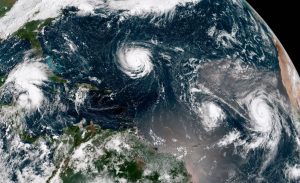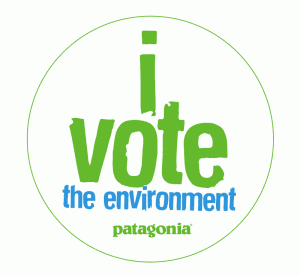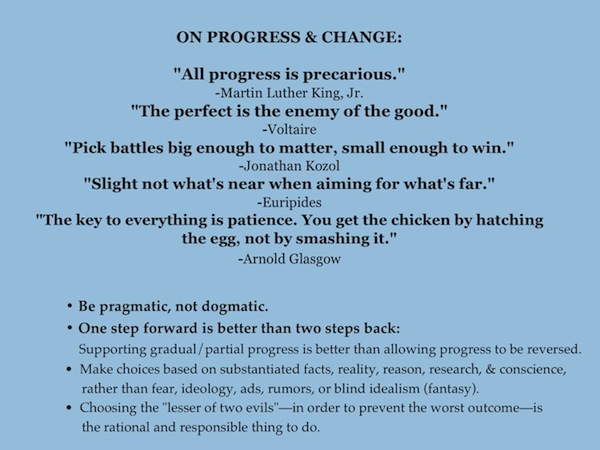The climate movement has been growing much larger and building power in recent years. The vast majority of people in the U.S. and in the world are concerned about the climate and want to see more climate action. And there’s no shortage of climate-focused organizations. But we do need more people who’ve been sitting on the sidelines to join the existing efforts and turn their climate concern into action, so we can reach a critical mass. There is strength in numbers and in collective action.

You don’t have to identify as an “activist” to amplify, support, or participate in the work of climate organizations, and you don’t need to wait for an invitation to join or to get involved—but if you’d like one, consider this your cordial, official invitation! All of us in the climate movement welcome you!
If you aren’t already familiar with a bunch of climate organizations, check out the list below. I recommend following at least a few of these climate organizations online (e.g., on social media) to get to know what they’re about and to get a sense of which ones have an approach or a tone that resonates with you the most. Then sign up to join—or get on the mailing list of—one or more of them. And start sharing their posts and actions with others in your social network.
This list of climate organizations is fairly comprehensive but it is not exhaustive. Most of the following groups are based in the U.S. and have a national or international scope, and most are non-profits. Some of these groups have regional or local chapters. (As I learn about other national/international groups over time, I will be adding more to this list.) Many other climate organizations exist, including local, grassroots groups and projects, all over the world. If you can’t find a local group, chapter, or committee in your town, you could start an informal climate group or project in your community, neighborhood, workplace, school, or religious congregation.
Note: In this first list, below, the organizations that are in bold type are the groups that I am most familiar with and feel most comfortable recommending, but all of these organizations have an important role to play. Are you familiar with some of these?
- 350.org / 350 Action
- Action for the Climate Emergency

- The All We Can Save Project/Circles
- Bank.Green
- Beyond Carbon
- Beyond Petrochemicals
- Biodiversity for a Livable Climate
- Bold Alliance
- Center for Climate Integrity
- Change the Chamber
- Citizens’ Climate Lobby
- Climate Access
- Climate Action Against Disinformation (CAAD)
- Climate Action Network (CAN)
- Climatebase
- Climate Cabinet
- Climate Cardinals
- The Climate Center
- Climate Changemakers
- The Climate Collaborative
- Climate Emergency Fund
- Climate Forests
- Climate Defense Project
- Climate Group
- Climate Hawks Vote
- The Climate Initiative
- Climate Justice Alliance
- Climate and Land Use Alliance
- Climate Majority Project (UK)
- Climate Mayors
- Climate Mental Health Network
- The Climate Mobilization
- Climate Power
- The Climate Reality Project
- ClimateRx
- Climate Solutions (in PNW)
- ClimateVoice
- CoolEarth
- Defend Our Future
- Earth Guardians
- Earth Hero (app)
- Earth Uprising
- Ecochallenge
- End Climate Silence
- Evergreen Action
- Environmental Voter Project
- Extinction Rebellion
- Fridays for Future

- Fossil Free
- Fossil Fuel Non-Proliferation Treaty Initiative
- GRID Alternatives
- Indigenous Climate Action
- League of Conservation Voters
- Mighty Earth
- Oil Change International
- OneGreenThing
- Our Children’s Trust
- Our Climate
- Outrider Foundation
- People vs. Fossil Fuels
- Post Carbon Institute
- Project Dandelion
- Project Drawdown
- REN21 Renewables Now
- Rocky Mountain Institute
- The Solutions Project
- Stand.Earth
- Stop the Money Pipeline
- Sunrise Movement
- Union of Concerned Scientists
- Vote Solar
- We Don’t Have Time
- The Week (group experience)
- Women’s Earth and Climate Action Network (WECAN)
- Work on Climate
- World War Zero
- Youth4Nature
- Zero Hour
These are organizations for people in particular professions or demographics:
- Medical Society Consortium on Climate and Health
- Nurses Climate Challenge
- Physicians for Social Responsibility
- Third Act (for people over 60)
- Elders Climate Action
There are also a number of faith-based (religious) climate groups.
Also, many broad-based environmental organizations include climate issues among the spectrum of environmental issues they work on. After all, climate change affects and is affected by every other environmental (and social) issue.
And many other types of environmental organizations with a specific focus (e.g., environmental justice, youth/young people, health, land/forest conservation, animal/species protection, etc.) often also recognize and address climate impacts in their work.
If you would like assistance with identifying a few organizations that are the best fit for your particular interests or your preferred organizational strategies/approaches (e.g., legal, legislative/lobbying, direct action, education/awareness building, etc.), I’m a climate advisor and I can assist you with that.
If you would like to recommend a climate organization that isn’t on this list, please mention it in the Comments!
Climate Resources
The following are information sources—including some media/news sites—that provide science-based, fact-based information on the climate crisis and climate solutions. Most of these are based in the U.S. These sites can help you get more informed or help you educate others about climate issues:
- Canary Media
- Climate Central
- Climate Coach column/newsletter (Washington Post)
- Climate Desk
- Climate Nexus

- Climate One podcast and public radio program
- Climate Science Breakthrough (see their videos!)
- Covering Climate Now
- The Crucial Years newsletter (by Bill McKibben)
- DeSmogBlog
- Drilled newsletter/podcasts
- Grist
- The Guardian: Climate Crisis coverage
- Heated newsletter
- Inside Climate News
- Living on Earth public radio program
- A Matter of Degrees podcast
- Not Too Late
- Outrider: Climate Change Resources
- Society of Environmental Journalists: Climate Change Resource Guide
- Talking Climate newsletter
- We Can Fix It newsletter + podcast
- Yale Climate Connections
- Yellow Dot Studios
- Intergovernmental Panel on Climate Change (IPCC) reports
- Planetary Boundaries assessment (Stockholm Resilience Centre)
For other environmental and general news sources, see our post on Reputable and Fact-Based News and Information Sources.
For other types of climate resources, also see our post on Books, Films and TV, and TED Talks.
Other relevant posts:
-
-
- Climate Actions for All of Us: Real answers to the question “What can I do about climate change?” [published April 2024]
- Climate-Related Posts
- Non-Profit Organizations to Know
-

 Over the past 10-15 years, it’s felt like new, large-scale crises emerge almost every day. It’s hard to focus on or prioritize any one issue, as so many issues are of dire importance.
Over the past 10-15 years, it’s felt like new, large-scale crises emerge almost every day. It’s hard to focus on or prioritize any one issue, as so many issues are of dire importance. We all have so many personal responsibilities and daily struggles and stressors of our own that it can be very hard to take in what’s going on in other people’s lives and in other parts of the world. Many people turn away because they are already overwhelmed and are in survival mode, and simply can’t cope with or absorb any more sad or scary news or more problems that seem intractable; we all go through certain periods of our lives, or parts of our days, when our own problems (or our families’) are all (or more than) we can handle. Taking on the weight of the world can be crushing. Almost none of us are unscathed or truly OK these days, as most of us are facing numerous challenges at societal and individual levels. It’s important to “put your own oxygen mask on first, before helping others with theirs” because you can’t help others unless you are alive, relatively sane and healthy, and able to function. But whenever we do have the capacity, we should strive to be compassionate, stay aware of what is going on outside of our immediate lives and circumstances, and try to make a difference whenever and wherever we can, however small our efforts may seem, on whatever specific issue(s) we feel we can make an impact on. Helping others (and humanity at large) also gives our own lives a greater sense of meaning and purpose.
We all have so many personal responsibilities and daily struggles and stressors of our own that it can be very hard to take in what’s going on in other people’s lives and in other parts of the world. Many people turn away because they are already overwhelmed and are in survival mode, and simply can’t cope with or absorb any more sad or scary news or more problems that seem intractable; we all go through certain periods of our lives, or parts of our days, when our own problems (or our families’) are all (or more than) we can handle. Taking on the weight of the world can be crushing. Almost none of us are unscathed or truly OK these days, as most of us are facing numerous challenges at societal and individual levels. It’s important to “put your own oxygen mask on first, before helping others with theirs” because you can’t help others unless you are alive, relatively sane and healthy, and able to function. But whenever we do have the capacity, we should strive to be compassionate, stay aware of what is going on outside of our immediate lives and circumstances, and try to make a difference whenever and wherever we can, however small our efforts may seem, on whatever specific issue(s) we feel we can make an impact on. Helping others (and humanity at large) also gives our own lives a greater sense of meaning and purpose.




